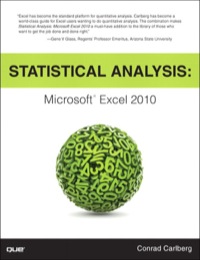Answered step by step
Verified Expert Solution
Question
1 Approved Answer
Question One (30 points) Select the right answer from the following: 1. All of the following may be used as tools for financial analysis except

Question One (30 points) Select the right answer from the following: 1. All of the following may be used as tools for financial analysis except a. cause-of-change analysis. b. trend statements. C. common-size statements. d. financial ratios. e. All of the above are tools for financial analysis 2. Return on Assets (ROA) measures a firm's a. ability to pay off debts quickly. b. profit performance. C. profitable use of debt. d. return on shareholders' investment. e. None of these. Condensed financial data are presented below for the Tulsa Corporation to answer the following questions: Show your calculations at the end 2021 2020 Accounts receivable $277,500 $230,000 Inventory 310,000 250,000 Total current assets 675,000 565,000 Total assets 800,000 700,000 Current liabilities 250,000 200,000 Long-term liabilities 77,500 75,000 Sales 1,640,000 Cost of goods sold 985,000 Interest expense 10,000 Net income 130,000 Tax rate 25% 3. The profit margin used to calculate return on assets for 2021 is (rounded): a. 8.9% b. 16.3% c. 17.2% d. 18.3% 4.In a common size balance sheet for 2021, accounts receivable is expressed as: a. 16.9% b. 41,4%. c. 34.7% d. 120.6% 5. The current ratio for 2021 is (rounded): a. 1.4 to 1 b. 2.0 to 1 c. 2.7 to 1 d. 3.4 to 1 6. The inventory turnover for 2021 is (rounded): a 2.61 times b 3.94 times c. 3.17 times. d. 3.51 times. 7. When assessing a company's credit risk, analysts a. use only financial ratios. b. use only the statement of cash flows. C. review both liquidity and solvency. d. look only at the operating and cash conversion cycles. 8. Which of the following actions is not an option for the lender when a borrower is in default? a. Modify the debt payment schedule in exchange for an increased interest rate or additional collateral. b. Adjust the loan payment schedule to better suit the company's anticipated operating cash flows. c. Petition a court to judge the borrower insolvent. d. Contact the borrower's customers and begin collecting their receivables. 9. Solvency refers to the: a. short-term ability to fund the company's operating needs. b. short-term ability to generate cash for immediate debt repayment needs. c. long-term ability to generate a positive return on assets. d. long-term ability to generate sufficient cash to satisfy plant capacity needs, fuel growth, and to repay debt when due. e. company's overall ability to generate a positive return on common equity for investors. 10. Trend statements help the user a. determine the reason(s) for changes over time in each financial statement line item. b. spot relationships among financial statement items. C. spot changes over time in each financial statement line item. d. identify variations in company financials against industry averages
Step by Step Solution
There are 3 Steps involved in it
Step: 1

Get Instant Access to Expert-Tailored Solutions
See step-by-step solutions with expert insights and AI powered tools for academic success
Step: 2

Step: 3

Ace Your Homework with AI
Get the answers you need in no time with our AI-driven, step-by-step assistance
Get Started


